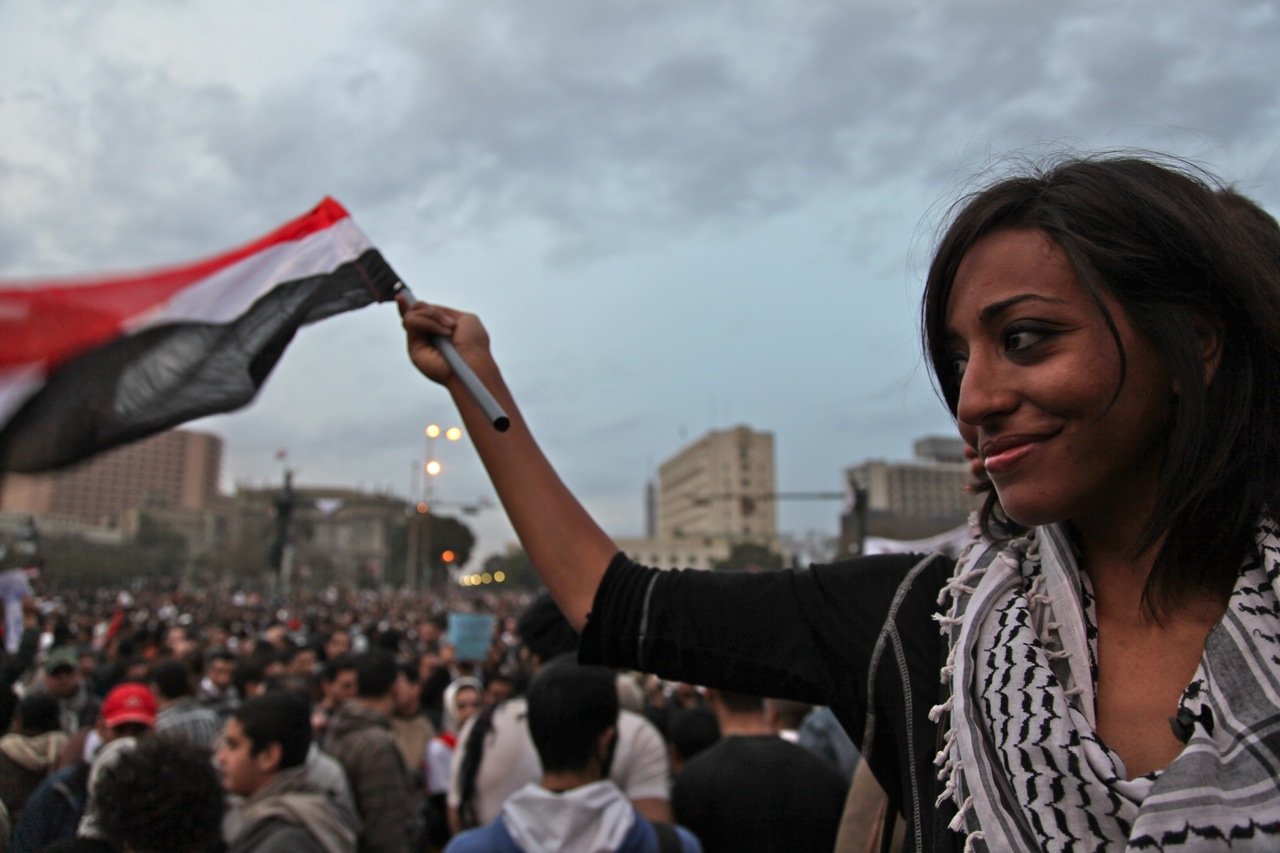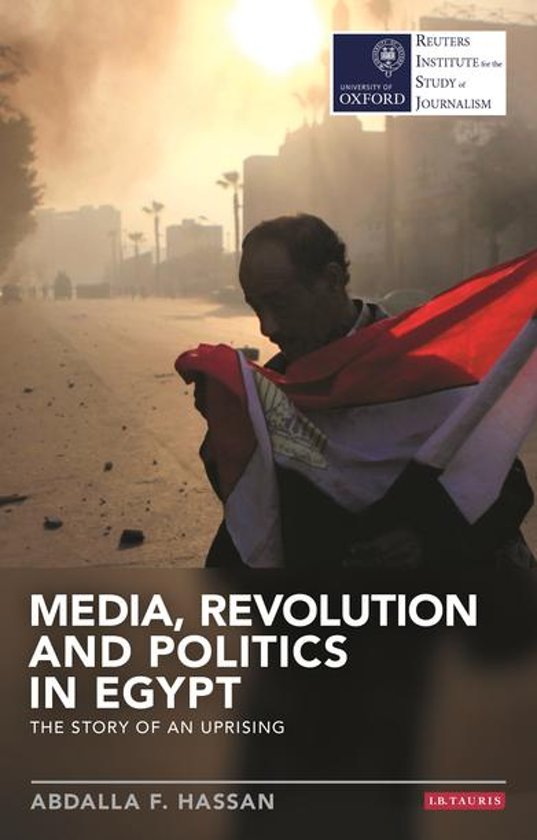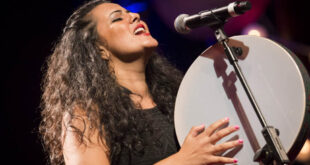The following is an excerpt from the book Media, Revolution and Politics in Egypt, written by Abdalla F. Hassan and published by I.B. Tauris in association with the Reuters Institute for the Study of Journalism at the University of Oxford. Taken from the first chapter of the book, this excerpt examines the evolution and limitations of press freedoms under the Mubarak regime.
Let them bark
A confluence of factors accelerated the creation of a wider space for an independent press, particularly from 2004 onwards, giving room for dissidents and critics of the regime to express their opinion. What Egypt used to have before then was a government press and a loud, noisy, and scurrilous opposition press that often lacked true credibility. New print arrivals presenting a strong challenge to the state-owned media came on the scene. With the existence of a private press, a much larger middle ground opened up where Egyptians sought to know what the truth was – not by just demagoguery but by actually looking for sounder facts. Movements on the street like Kifaya took on a deeper role, openly railing against the décor of political reform and voicing trepidation in the run-up to the first contested presidential elections on 7 September 2005, where Hosni Mubarak faced off against nine other challengers and won 88.6% of the vote, according to the official count. Combine that with increased pressure from the administration of George W. Bush for Egypt to at least make the appearance of moving towards reform, even as the US was aiding violations in human rights through its notorious renditions programme and proxy CIA prisons, which made Mubarak’s cooperation particularly useful.
Mubarak’s reluctance to implement political reform was well known to his American ally, which delivered billions in aid to an ‘ossifying and increasingly out of touch’ regime. ‘In all likelihood, it will not be possible to make great progress on democratic reform as long as President Mubarak remains in office,’ asserted US ambassador to Egypt Francis J. Ricciardone Jr. in a 2006 embassy cable. ‘We do not have a silver bullet, but we can press reforms that will lead, inexorably, to the “death by 1000 cuts” of Egypt’s authoritarian system. There will be no “Orange Revolution on the Nile” on Mubarak’s watch, but we must aim to consolidate each modest democratic advance.’[1]
Evening talk shows and news magazine programmes were where most Egyptians got their news and information. They had replaced the basic function of the local evening newscast on state-owned terrestrial channels, which led with a story about the president (even if something as mundane as his telephone conversation with another world leader), prime minster, or top-ranking government official, reported a factory opening or other ceremonial occasion, and quickly moved on to cover news outside Egypt.
Mubarak’s government had the means to pressure the private press. There are ways to teach outspoken journalists a lesson, too. They include arrests, beatings, prosecution, travel restrictions, being monitored and having phone calls tapped by the security agencies, or by having allies of the regime tie up journalists in expensive and time-consuming court cases. Journalist Abd al-Halim Kandil, known for his caustic editorials against Mubarak and the regime, was abducted in November 2004 in front of his home, beaten, stripped naked, robbed of his wallet and thick spectacles, and left on a desert road. ‘So you’ll stop talking about the big guys,’ he was told. Yet the treatment did not deter him; his 2009 polemic was titled Kart ahmar li-l-ra’is (A Red Card for the President).[2] Some media professionals were up for the challenge of battling against forces of entrenched power, others were not. Journalist Andrew Hammond expressed it this way: ‘For journalists, it’s a game of daring an official mindset that rules by instilling fear of its ability to strike at any time. Many decide that cohabiting with and being co-opted by the authorities is the better part of valor.’[3]
Security agencies often got involved in the affairs of the press through hidden means, becoming what Abd al-Moneim Aboul Futouh, who was a prominent figure in the opposition Muslim Brotherhood, called the ‘security press’:
The security press is a number of journalists in different places, some of them are editors-in-chief of state-owned publications. Their role is to be an instrument of the security agencies. The security agencies use them to harm a political opponent, to defame his reputation, or to injure an organisation like the Muslim Brotherhood. I call this group the security press, the press that gets its instructions from the security agencies, that does not practise the function of media and journalism as professionals – neutral, honest, clean.[4]
The state-owned press routinely referred to the Muslim Brotherhood as the ‘banned group’. Egyptian television blacklisted opposition figures. Even as the secretary-general of the Arab Medical Union, Aboul Futouh was prevented from appearing on Egyptian television to talk about purely medical matters. The barrier of allowing Brotherhood members airtime to defend their views was broken first by Al Jazeera and occasionally by private Egyptian satellite channels.
The Egyptian regime exerted a firm level of control on forms of political expression, particularly through the state’s one-million-man-strong security apparatus. ‘EGIS [Egyptian General Intelligence Service] Chief Omar Soliman and Interior Minister [Habib] al-Adly keep the domestic beasts at bay, and Mubarak is not one to lose sleep over their tactics,’ described a US Embassy cable.[5]A freer press has been called ‘the right to scream’ or ‘the right to bark’, but when Egyptians attempted to organise politically the security state cracked down. While ‘freedom to talk’ expanded, ‘freedom of action’ had its limits. ‘So you can criticise, give the opposite opinion, accuse the authorities, and question their legitimacy,’ described Gamal Ellatif, strand editor at BBC Arabic. ‘But when it comes to action on the ground then it is met with negative consequences. They call it the freedom to vent (tanfis), not the right to implement (tanfiz). So say what you like but do not implement what you say.’[6]
While the press in the last years of the Mubarak presidency was allowed a wider space for criticism, that did not end rigged elections or promote true political reforms. ‘What is worst is the lack of responsiveness,’ contended Awatef Abdel Rahman, professor of journalism and mass communications at Cairo University. ‘The private and opposition press uncovers corruption and the government does nothing.’[7] That sentiment was echoed by Aboul Futouh. ‘Criticism of the executive branch has no value if it is not followed by action. We don’t have free expression in Egypt; we have the right to yell.’[8] Take any number of issues that have been heated topics of discussion, he continued. Ultimately nothing has happened to change the realities on the ground. ‘There is no response or solution to most chronic problems. So what’s the value of expression? Is it a form of venting? Psychological help? Is that going to be the goal? If its role is psychological, it should be played out at the doctors’ offices and not in the press.’ To have a noticeable impact, the right to free expression needs to diffuse all levels of society, including the street, posited Aboul Futouh. ‘What will lead to change is popular action.’
Alaa Al Aswany entertained no illusions about literature’s ability to bring about change. ‘The function of literature is not to change the political realities in Egypt or anywhere else,’ said the novelist. ‘Literature is not a political strategy. If you want to change the political reality, be involved in activism.’[9] Al Aswany’s literary and political salons used to take place at downtown Cairo cafés, but when the owners were pressured by the security agencies not to host the gatherings, they eventually moved to a crumbling building, home to the opposition Karama (Dignity) Party, in the Cairo district of Munira. A dentist by profession, Al Aswany has penned regular political articles, where he advocated democracy, human rights, and the rule of law to replace an authoritarian system that favours those with power, wealth, and connections. He ended his columns with the words, ‘Democracy is the solution.’
In one opinion piece in the independent daily al-Shuruk (Sunrise) published in April 2010, Al Aswany recounted the history of the Iranian revolution and how its ruler had become completely oblivious to how his people were living. ‘The dictator lives in complete isolation from the life of his citizens and does not truly know what happens in his country . . . but only its image, transmitted to him through reports raised to him by the different intelligence agencies.’ It is in the interests of these agencies to shroud the truth so as not to receive the dictator’s wrath, Al Aswany continued. He linked the example of the shah of Iran’s detachment with the ruler of his country.
What do you think President Mubarak knows about what happens in Egypt? Does he know that more than half of Egyptians live below the poverty line? Is the president bothered that millions of Egyptians live in slums without access to water, electricity, or sewage? Is he distraught by the spread of unemployment, poverty, disease, and hopelessness? Does the president know that Egypt has sunk to the bottom in all fields? Did he hear about the poor who die waiting in queues in search for loaves of bread or propane gas canisters? Has he heard about the boats of death through which thousands of youth try to escape despair and are found drowned at sea? Has anyone told the president that thousands of wage earners and their children lie in protest for months on the sidewalks before the People’s Assembly because their lives have become unbearable? Has President Mubarak thought of the employee who earns 100 Egyptian pounds a month to spend on his whole family when a kilo of meat has reached 60 pounds? I really do not know how the president thinks. And were I to guess, according to the phenomenon of the isolation of the dictator, President Mubarak is completely detached from the reality of what is happening in Egypt.[10]
Al Aswany concluded his column by calling on the president to end his years of rule with true democratic reform, and amend the constitution to allow for honest competition between candidates and transparent elections that allow citizens to choose representatives who will end Egypt’s ordeal.
It was these sorts of hard-hitting and widely read columns that forced the authorities to take action, closing a paper factory belonging to newspaper publisher Ibrahim al-Mu‘alim because of alleged safety violations. The message was clear: stop publishing Al Aswany’s columns. State Security officers routinely called al-Mu‘alim after the articles appeared in the paper and warned him there would be consequences. Al Aswany refused to tone down his criticism of the president and the ruling clique, and submitted his resignation to al-Shuruk in October 2010 after al-Mu‘alim’s factory was shut down a second time. Al Aswany was willing to pay the price for his words, but he was not prepared to have factory workers or the owner suffer in his place.[11]
Even as the state cracked down on the media, an Egyptian public became more informed, public debate was heightened, and there was an expectation of hearing different perspectives and viewpoints. ‘It is one area where there really has been quite deep reform with profound impact. It is not a matter of having a few more-or-less independent newspapers with pretty good circulation,’ added Max Rodenbeck, the Middle East bureau chief for The Economist. ‘There is a sense of airing grievances. This is presumably a part of government policy to let things open a little bit. Cynics would say that the policy is to let people shout just to let off steam but I think there had been a very marked widening of the circle of freedom of speech.’[12]
 Arab Media & Society The Arab Media Hub
Arab Media & Society The Arab Media Hub






